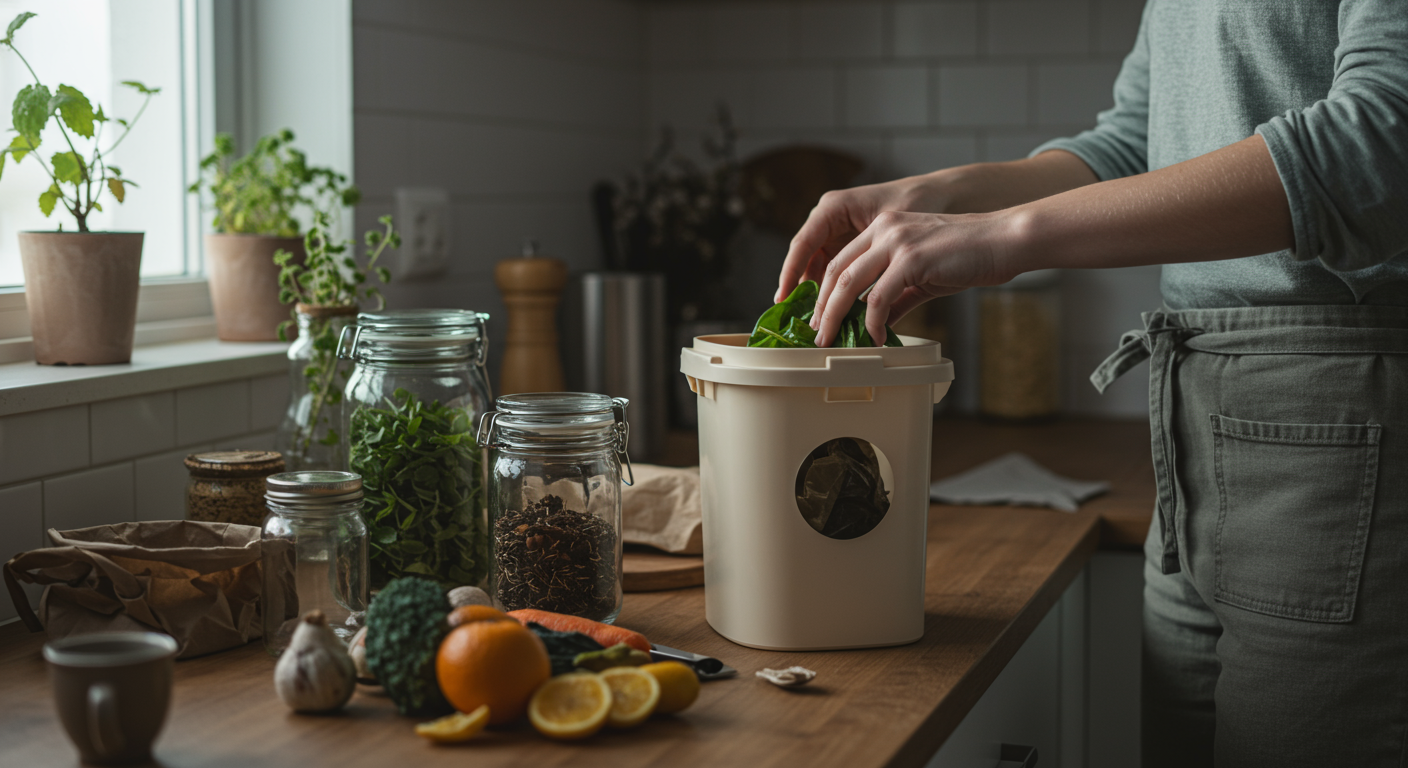Embracing a zero-waste lifestyle might seem daunting at first, but it's a journey filled with small, impactful changes. This guide is designed to make your transition to a zero-waste life simple, manageable, and rewarding. You'll not only reduce your environmental impact but also discover the joys of a simpler, more intentional way of living.

Why Embracing Zero Waste Matters for a Greener Life
Choosing a zero-waste lifestyle is more than just a trend; it's a commitment to a healthier planet. By reducing the amount of waste you generate, you lessen the strain on landfills, conserve precious resources, and minimize pollution. It’s about making conscious choices that protect our environment for future generations.
Essential Steps to Get Started
Starting your zero-waste journey doesn’t require an immediate overhaul of your entire life. Here are a few essential steps to get you started:
- Assess Your Waste: Take a week to observe the waste you generate. Identify the biggest culprits—plastics, food packaging, etc.—to target your efforts.
- Embrace Reusables: Swap single-use items for reusable alternatives. Carry a reusable water bottle, coffee cup, shopping bags, and produce bags.
- Refuse What You Don't Need: Politely decline items like plastic straws, disposable cutlery, and excessive packaging.
- Reduce Consumption: Before buying anything, ask yourself if you really need it. Borrow, rent, or buy secondhand when possible.
- Recycle & Compost: Familiarize yourself with your local recycling guidelines. Start a compost bin for food scraps and yard waste.
Common Beginner Questions Answered
- Isn't Zero Waste Expensive? Initially, there might be some investment in reusable items. However, you'll save money in the long run by reducing purchases and avoiding disposable products.
- Is It Time-Consuming? While it takes some initial effort, many zero-waste habits become second nature. Meal planning, for example, can save time and reduce food waste.
- What if I Can't Be Perfect? Zero waste is a journey, not a destination. Every small change makes a difference. Focus on progress, not perfection.
Tips for Success
- Start Small: Don't try to change everything at once. Focus on one or two areas, like the kitchen or bathroom, and gradually expand.
- Find Eco-Friendly Alternatives: Research and replace disposable items with sustainable alternatives.
- Plan Your Meals: Meal planning can significantly reduce food waste and help you avoid impulse purchases.
- Embrace DIY: Make your own cleaning products, personal care items, and other essentials to reduce packaging and control ingredients.
- Join a Community: Connect with local zero-waste groups or online communities for support, tips, and inspiration.
Understanding Your Impact
Every choice we make has an impact, both big and small. By adopting a zero-waste lifestyle, you actively reduce pollution, conserve resources, and promote a healthier ecosystem. Your actions influence others, creating a ripple effect of positive change.
Finding Eco-Friendly Alternatives
Making informed choices is key to minimizing your environmental footprint. Opt for products made from sustainable materials, with minimal packaging, and from companies committed to ethical practices. Look for certifications like the Forest Stewardship Council (FSC) for paper products or USDA Organic for food.
Quick & Easy Sustainable Swaps
- Reusable Shopping Bags: Say goodbye to plastic bags and always carry reusable shopping bags.
- Reusable Water Bottle: Stay hydrated on the go with a reusable water bottle. Check out Hydro Flask for a great option.
- Reusable Coffee Cup: Avoid disposable cups by bringing your own reusable coffee cup.
- Bamboo Toothbrush: Switch to a bamboo toothbrush to reduce plastic waste in your bathroom.
- Solid Shampoo and Conditioner Bars: These eliminate plastic bottles and often last longer than their liquid counterparts.
- Reusable Food Storage: Use Stasher Bags or other reusable containers instead of plastic wrap and single-use bags.
- Refillable Cleaning Products: Purchase cleaning products in bulk or concentrated form to refill reusable spray bottles.
Next Steps in Your Green Journey
Continue your zero-waste journey by exploring new areas of your life. Consider composting, supporting local businesses, and reducing your overall consumption. Each step you take brings you closer to a more sustainable lifestyle.